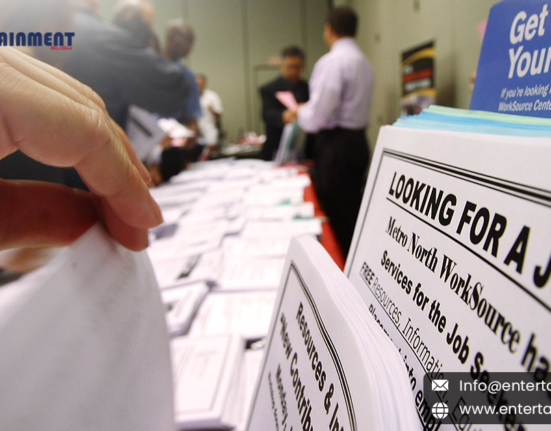The U.S. job market, a key indicator of economic health, has shown signs of deceleration, raising concerns among economists, businesses, and policymakers. For years, the American economy has been buoyed by robust job creation, which has driven consumer spending, supported business growth, and sustained economic expansion. However, recent data suggests a slowdown in hiring, which could have far-reaching implications for the broader economy.
The Slowdown in Hiring
Over the past decade, the U.S. job market has been remarkably resilient, even in the face of global uncertainties and domestic challenges. Monthly job gains often exceeded expectations, and unemployment reached historic lows. This environment fostered a sense of confidence among consumers and businesses alike, fueling demand for goods and services and encouraging investment. However, the latest employment reports indicate a shift. Hiring has slowed, and certain sectors, particularly those sensitive to economic cycles, are beginning to shed jobs.
Several factors contribute to this deceleration. First, the Federal Reserve’s efforts to combat inflation through interest rate hikes have made borrowing more expensive, leading to reduced business investment and, consequently, slower job growth. Additionally, geopolitical tensions, particularly those affecting global supply chains, have created uncertainty, causing companies to pause hiring as they assess the potential impact on their operations. Furthermore, technological advancements and automation continue to reshape the job landscape, displacing workers in certain industries and creating mismatches in the labor market.
Ripple Effects on the Economy
The implications of a slowing job market are profound. Employment is a key driver of consumer spending, which accounts for nearly 70% of U.S. economic activity. When job growth slows, or unemployment rises, consumers become more cautious, cutting back on spending. This reduction in demand can lead to lower revenues for businesses, further dampening economic activity.
A weakening job market can erode consumer and business confidence. When people feel insecure about their job prospects, they are less likely to make significant financial commitments, such as buying homes or cars, which are crucial to driving economic growth. Similarly, businesses may delay expansion plans or reduce investments in new projects, leading to a slowdown in economic momentum.
The Role of Policy Responses
In response to these developments, policymakers are faced with difficult decisions. On one hand, there is a need to support economic growth and job creation, which could involve measures such as targeted fiscal stimulus or easing monetary policy. On the other hand, the ongoing battle against inflation necessitates caution, as overly stimulative policies could reignite price pressures. The challenge lies in striking a balance between fostering job growth and maintaining price stability.
There is also the question of how to address the structural changes in the job market. As automation and digitalization continue to transform industries, there is a growing need for policies that support worker retraining and skills development. Investing in education and workforce development programs can help ensure that workers are equipped to succeed in the evolving job landscape, reducing the risks of long-term unemployment and economic stagnation.
Looking Ahead
The deceleration of the job market is a cause for concern, but it also presents an opportunity for reflection and action. As the economy navigates this period of uncertainty, it is crucial for policymakers, businesses, and workers to adapt to the changing environment. By addressing the root causes of the slowdown and implementing forward-looking policies, there is potential to not only stabilize the job market but also lay the groundwork for a more resilient and inclusive economy in the future.
In the coming months, all eyes will be on key economic indicators, including job growth, consumer spending, and business investment, as stakeholders seek to gauge the trajectory of the economy. The decisions made during this time will play a critical role in shaping the economic landscape for years to come, making it imperative to approach these challenges with a balanced and strategic mindset.





Leave feedback about this